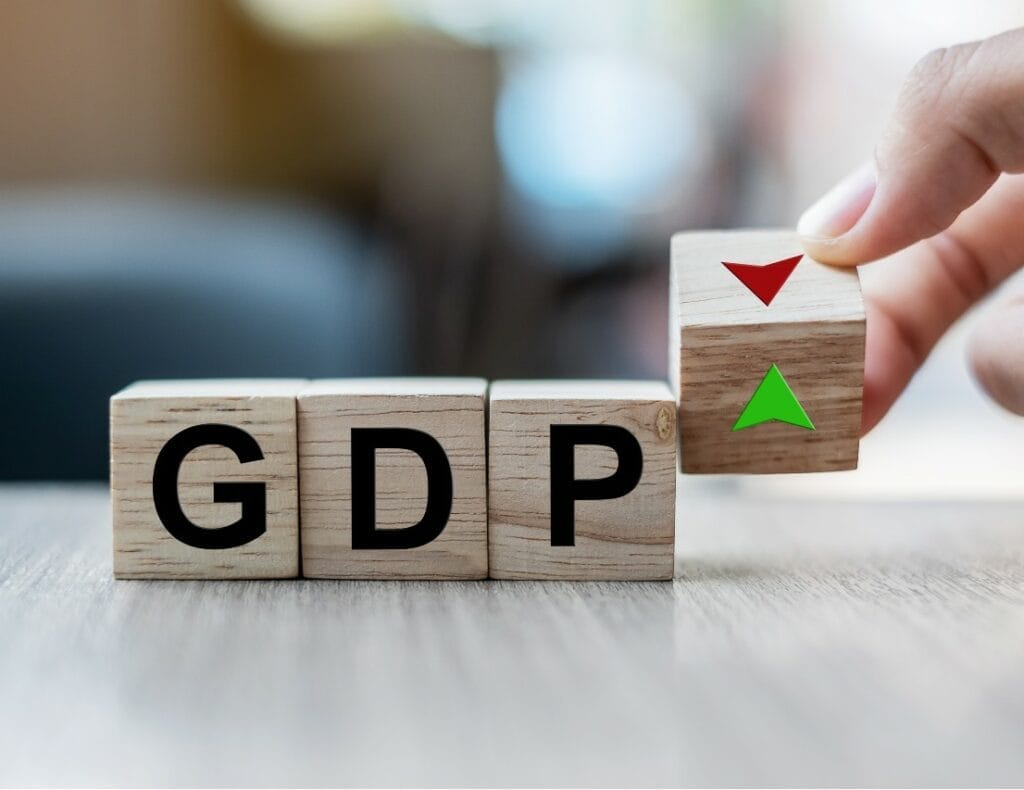There’s this canard that comes from some on the left that Gross Domestic Product doesn’t really matter much because it doesn’t say anything about inequality or sustainability or our common humanity or, I suppose you could add, whether dithering leads to true happiness.

And while it’s true GDP doesn’t measure the value of home-baked oatmeal cookies – which I think we can all agree are very important in life – I also agree with the perspective of Andrew Hanson, our visiting fellow and author of the first chapter in our Mandate for Madison.
GDP is the still the number one, kick-ass (or depressing in Wisconsin’s case) statistic that economists and the rest of us should consider to see if we are measuring up to our neighbors.
The way Hanson puts it in the book, actually, is it’s the “go-to, top-line statistic to measure the health of an economy.”
In a podcast we are releasing today, meanwhile, he says it’s important because “what that’s really saying is how much output or how much stuff can we make given the capital in the state per person that we have. Productivity ultimately leads to income, and that leads to prosperity, so that’s kind of the first cut that an economist would look at on a big picture to see what does the economy look like.”
That’s why Wisconsin’s per capita GDP in comparison to other Midwest states is so troubling. Right now, Wisconsin ranks 29th in the country (including the District of Columbia). Even more troubling: we’re trending in the wrong direction. In 2011, Wisconsin was the 4th most productive of seven Midwestern states per capita. We’re now second from the bottom.
“That’s not the trend you want,” said Hanson.
In 2021, per capita productivity was $51,355 in Wisconsin, some $9,000 behind Illinois and Minnesota.
Even Iowa has a per capita GDP that is more than $5,000 higher than the Badger State.
The left does have a point that GDP is a pretty blunt metric — especially at the statewide level. It differs dramatically from county to county. Dane County, at $70,814 per capita, has a GDP roughly twice that of Racine and Kenosha Counties.
Hanson says a few things could be responsible:
- The lower GDP counties could have a lot of people out of the workforce.
- Those who are working could have different skillsets, levels of education, experience.
- There could be a lot of people living in those counties but working elsewhere. For instance, they might be living in Kenosha but working in Chicago.
There are some positive economic trends in Wisconsin, Hanson points out in the Mandate — most notably, migration. Wisconsin over the last decade had net population gains from most other Midwest states — particularly Illinois. Approximately 55,000 more Illinoisans moved to Wisconsin than the other way around, according to data Hanson collected from the IRS.
Some might still be working in Illinois — although a simple drive down I-94 is evidence of the businesses that were grown up here by Illinoisans or just moved across the border.
Some of the data seems a little contradictory. We’re less productive than other states and the gap is widening. But we have generally low unemployment, average business creation and positive migration.
“I think there are some things Wisconsin is clearly doing well,” said Hanson. “When you look at the race between the migration that’s happening on the tax income side and population side from Illinois, I think that’s a positive. So, looking deeper into why that’s happening, I think would be a really telling thing to look at.”
As Badger Institute Policy Director Patrick McIlheran and I wrote in the Preface to the Mandate, Wisconsin is just sort of doing okay, “Not terrible. Sort of all right. Some high. Some low.”
But there is a need for growth and ways to achieve it.
“The way I look at it,” said Hanson, “is you want to write fair rules, have a low tax burden that’s broadly distributed so it’s not treating anybody unfairly or giving someone an unfair fair advantage, so people, when they have an idea for something like a business, they’re able to do that. You want to limit things like burdensome regulation that’s unnecessary. Those are the kinds of things that kind of grease the wheels of the economy. You want all that going.”
“Continuing to push for those types of things, to think about growth as not just some, ‘Oh, this is a greedy thing to do.’ The economy is what ultimately brings people the jobs that they need to survive and have their well-being.”
GDP matters — and there are many ways to grow it. More on how we achieve that, and maybe even an oatmeal cookie recipe, in the weeks to come.
Mike Nichols is the president of the Badger Institute. Permission to reprint is granted as long as the author and Badger Institute are properly cited.
Submit a comment
"*" indicates required fields




